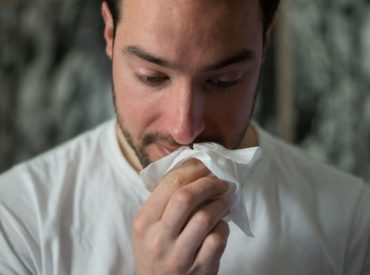Your body is full of trillions of bacteria, viruses and fungi. They are collectively known as the microbiome. While some bacteria are associated with disease, others are extremely important for your immune system, heart, weight and many other aspects of health. When you take antibiotics they not only act on bacteria that cause infections but also affect the resident microbiota.
Repeated use of antibiotic courses can be particularly dangerous, but even a single course can have permanent implications. It’s also important to remember that antibiotics only generally work against bacteria – and to varying degrees against specific strains. Microbes are always competing for space and resources in our gut, and a strongly diverse population helps to prevent infections and imbalances. Unfortunately, by wiping out their competition, antibiotics give both fungal/yeast microbes and antibiotic-resistant microbes a chance to surge and become more virulent. It can take a long time for our microbiome to grow back, and it may never fully grow back to its former state. This microbiome imbalance is a large cause of downstream dysfunction in the body.
The health of the intestinal microbial population is critical because over 2/3 of our immune system resides in our gut. Immune cells are the source of inflammation (or not) in the body, and they take much of their cues about the status of our world by surveilling our present, microbial population. Research over the past 5-10 years has strongly reinforced the old saying that “disease usually begins in the gut.” Research shows that our gut microbes affect weight, mood, vulnerability to allergies and asthma, and risk of autoimmune disease, just to name a few. They are our symbiotic partners in creating wellness in our bodies. And antibiotics seriously damage our teammates. Some cases of IBS, asthma, allergy onset, chronic anxiety, eczema, acid reflux, arthritis, migraines, insomnia, chronic congestion….all can begin downstream from a course of antibiotics. Sometimes a few days later, sometimes a few months later.
Excessive or inappropriate antibiotic use can have dramatic downstream consequences for us as individuals but also as a population overall. Having higher microbial variety in our guts helps our immune systems to better know who is friend and who is foe – and thus appropriately target and proactively prevent pathogenic microbes from moving in and setting up shop. We may be passing on more limited microbiomes to future generations and changing our vulnerability to pathogens.
Don’t get me wrong–there are times when antibiotics are absolutely necessary. But too often we end up choosing one because we were unwilling to make the lifestyle choices that help our immune system to be strong and counter bacterial threats on its own. Our immune system is constantly addressing bacterial threats “behind the scenes” without your knowledge. When you “feel sick,” it’s actually not an infectious microbe directly causing those symptoms. What you feel is the immune system going into higher gear, and your symptoms are evidence of its activity (e.g., fever, congestion, fatigue). What your body most needs you to do then is to hear its call for help and change your behavior. Rest. Hydrate. Sleep extra. Avoid stress. Stop pushing. And yes, perhaps stay home from work for a few days. Too often, we want to “push through” those initial symptoms that are telling us we might be “coming down with something.” And we reap the consequences. This is especially critical as we move into flu season during the COVID pandemic.
They are simple topics, but they are powerful choices. And choices we can struggle to make on a daily basis! To help keep a strong immune system, I recommend the following.
- Keep your Vitamin D intake high throughout the year, ideally around 50 ng/ml or more.
- Ask your doctor to check your Zinc specifically with an “RBC Zinc” marker (not serum – and you might have to be insistent to get it). You want to be in the upper third of the reference range for this marker, not barely in it. Zinc is critical for strong immune function.
- Sleep. Deeply. Sleep should not be one of those things we finally “give into it” late at night when we can no longer function. Sleep is when the immune system restores itself. Simply getting less sleep for several days in a row increases your chance of “getting sick.”
- Feeling stressed is an early warning sign. As soon as you experience persistent stress for more than a day or two, remember that your immune system is purposefully suppressing itself. It’s part of our adapted survival response. The body assumes that if we’re “running for our lives” that we cannot afford to get sick, or we might not survive. So, when we live with ongoing stress, our immune system is weaker. Period. Develop some mindfulness habits that help you to see and (more importantly) reduce your stress. Remember that stress is not about what’s happening around us; it’s about the response we choose to have to those circumstances. We can always change our choices. Simple daily activities like meditation, gratitude journaling, long walks in nature, prayer….these can all help to reset our perspective and enable us to not choose stress. I believe that ongoing stress is the #1 reason why people get sick. We tell ourselves “I’m not that stressed,” but alas, our immune system is the one that ultimately decides.
- Keep the immune system in your gut calm and balanced by enjoying lacto-fermented foods on a daily basis e.g., natural sauerkraut, pickles, kimchi (note these cultured vegetables do not have vinegar in them) so they will be in the refrigerated section of the grocery store. Plain kefir or plain yogurt are also good choices.
If you do feel illness coming on, the key to prevent getting sick is to respond quickly. Let your body know you are hearing it struggling – and are going to honor it. In addition to the above items, if you feel something might be coming on, you may want to consider an immune boost. This has worked for me dozens of times and many, many of my clients:
- Increase Vitamin D3 intake
- Increase Vitamin C intake
- Take an extra 30-40mg zinc picolinate once daily (must be on a full stomach, or nausea is likely)
- Stop consuming dairy products entirely (e.g., milk, cheese, cream, butter) if the illness is likely to include any congestion (e.g., cold, flu, respiratory infection, ear infection)
- Take a probiotic capsule once daily
- Drink warm lemon water or herbal tea with honey
- Consume bone broth
- Rest
If you do have to take a course of antibiotics, remember it’s critical to take a strong probiotic twice daily while doing so and then for a month afterward (you need this even if you’re eating cultured foods regularly). Specifically, you need a probiotic that includes a species called Saccharomyces boulardi (often abbreviated S. boulardi). I recommend Metagenics UltraFlora Acute Care as my top choice in these cases. It includes S.B. but also a particularly anti-inflammatory strain of Lactobacillus. The key here is to keep the immune system calm during the course but also to aggressively protect against undesired surges in other microbes (and helping to maintain good microbiome balance). Please note that those with a yeast or mold sensitivity should avoid taking S. boulardi because it’s a yeast.







